Cate Campbell: ‘I’ve missed being in the water’
In an exclusive interview, swimmer Cate Campbell talks about the postponement of the 2020 Olympics and her shot at redemption, and looks back at her bittersweet race in Rio, which she calls the “greatest choke in history”.
Stellar
Don't miss out on the headlines from Stellar. Followed categories will be added to My News.
- Deborra-lee Furness: ‘I don’t want to be judged as Mrs Jackman’
- EXCLUSIVE Ben Fordham: ‘I’m asking for trouble’
Four weeks from now, professional swimmer Cate Campbell was expecting to board a plane bound for Japan.
Once there, she would set up camp in Nagaoka, a town three hours north of Tokyo. And for two intense and gruelling weeks, she planned to undergo the last stretch of training in the pool, often hitting the water before sunrise as she prepared to compete in her fourth Summer Olympic Games.
The Australian swim team would be staying well away from the Olympic Village compound, located in Tokyo’s waterfront district, because 10,000 people from across the globe converging in one place at the same time could create a breeding ground for germs ahead of the competition.
This had always been the plan – put in place well before anyone knew of something called COVID-19.
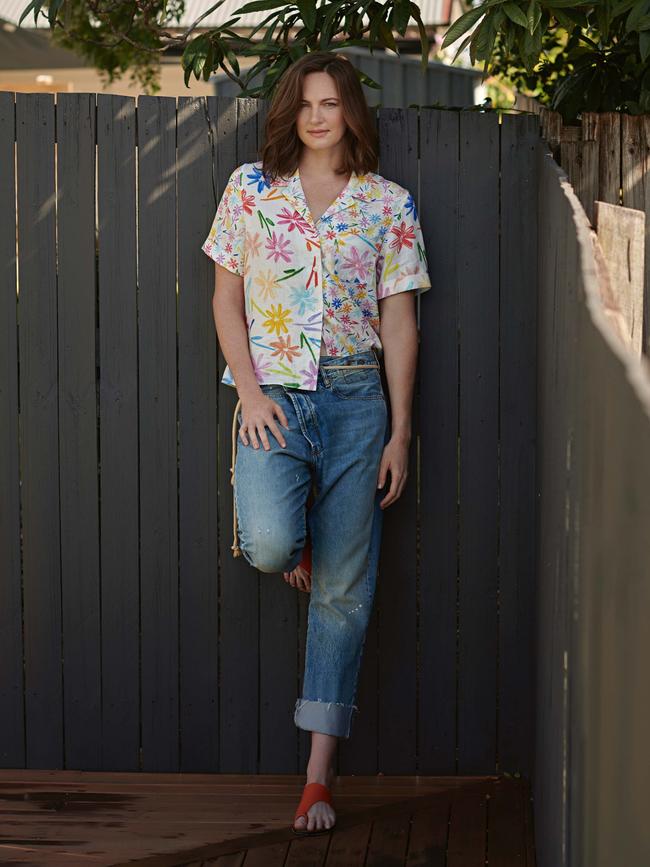
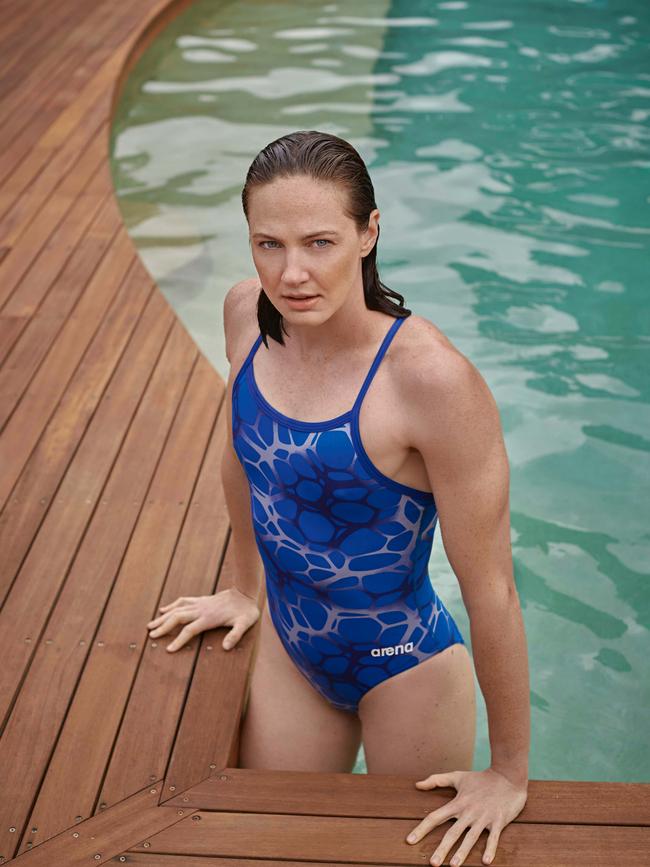
Turns out winning two Olympic gold medals and being one of the fastest swimmers in the world means little in the face of a global pandemic.
By March, COVID-19 had ultimately forced the closure of aquatic centres around the country and eventually brought the 2020 Tokyo Olympics to its knees, prompting a historic, first-ever postponement. They are now set to commence on July 23, 2021.
So with no pool to escape into – and then, it turned out, no Games for her to compete in and no trip to be made – Campbell made a pact with herself. She would still force her body to get out of bed at dawn and take herself outside, where she would document the sunrise.
“I started to pick up photography a couple of years ago, and I’ve been making an effort to go out and find beautiful photos to take, just for the sake of doing things,” Campbell tells Stellar from her current base in Brisbane, where she says she has also planted a vegetable garden and tried her hand at furniture restoration in lieu of being able to swim. (Believe it or not, she doesn’t have a pool.)
“I’m doing it for the joy that it brings me, but not to achieve a goal... which has been a pretty different headspace for me.”
For the past three years, Campbell’s life revolved around working to ensure she could peak mentally and physically for a roughly 50-second race that is now taking place a whole 365 days later than she anticipated.
And the hardest part, she tells Stellar, was that when the news hit, she couldn’t process it in the best way she knows how – in the water.
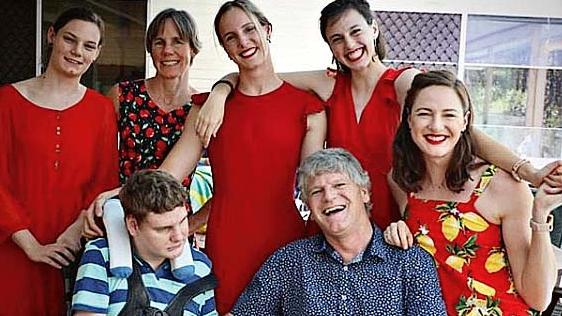
“I had the physical thing I’m good at, and my passion, taken away all in one day. It was a bit of a shock,” she says. “I’ve really missed being in the water. It’s the place that I feel most at home. It’s quite meditative. It’s a time where I clear my mind and I begin to plan, and I’ve been feeling a lot more scattered than I would normally.”
The 28-year-old explains that she has spent almost seven weeks out of the pool, which is the second-longest break she’s taken in an accomplished swimming career that began at age 16. Her first hiatus came after the 2016 Rio Olympics.
Although she won a gold and a silver medal in relay events, the individual gold for the 100m freestyle resulted in a dead heat, and went to both Canadian Penny Oleksiak and American Simone Manuel. Campbell was, at the time, the world-record holder for that race, and was favoured to win.
Instead she came in sixth, a moment she labels “the greatest choke in history”. Heartbroken, Campbell decided to take time off to process her relationship with the sport, which has included years of swimming alongside her younger sister, fellow Olympic gold medallist Bronte.
“My break from swimming in 2016 was like a conscious uncoupling. But we had a very amicable reunion. We’ve been going along really well since then,” she jokes.
“The difference is that I really wanted that break. Whereas this one, I haven’t really wanted, and I probably fought it for the first couple of weeks.”
Mostly because it was her shot at redemption. It all seemed so possible, she says. “I really felt like I was tracking well heading into Tokyo. I was doing everything right. I was in the right mindset. I was physically in good shape and mentally prepared for the battle. I’d given myself every opportunity.”
When the clock struck midnight at the start of this year, Campbell went into her own self-imposed lockdown as she began to prepare for the Games.
“It was training, then resting,” she explains of the schedule. “Not going out at all, really. Life in isolation is not too dissimilar to life in Olympic preparation.”
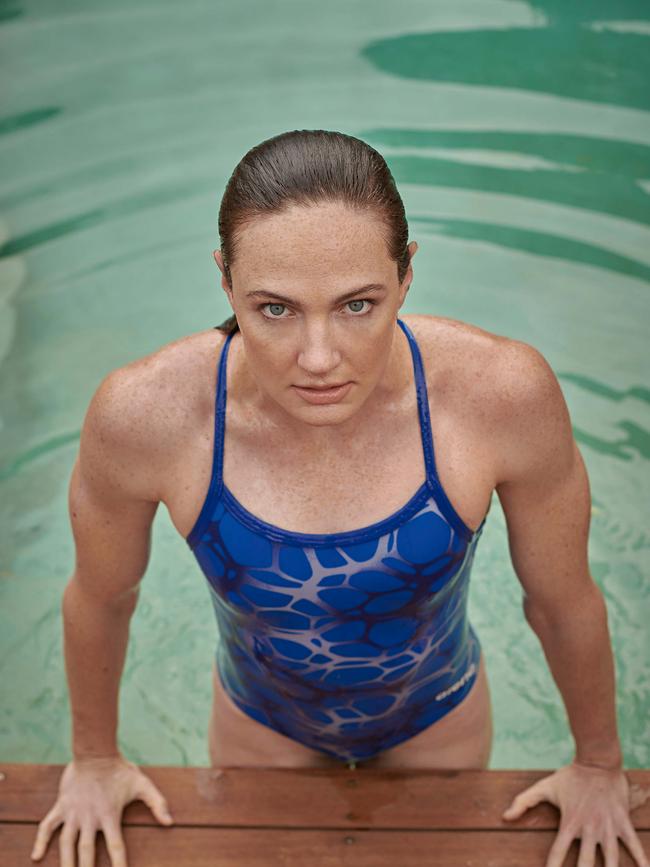
News of a virus with the potential to wreak global havoc had started to filter into conversation a month later.
But Campbell shrugged it off as a beat-up, and explains her reasoning, “Every Olympics I’ve been to, there has been some major health or security crisis threatening it.”
But like the curve of the virus itself, what started as small rumours of tweaks to the world’s most-watched sporting event suddenly peaked when the Games were altogether delayed until 2021.
Years of careful planning went out the window, and Campbell’s coach Simon Cusack tells Stellar it took a while for his star pupil to accept the reality of what had happened.
“Cate didn’t want to think about the Games being postponed. She was fully committed to the process,” he says.
Campbell agrees. “Having your whole world turn on its head in a day was a lot to take in,” she explains. “It took time to adjust. I am someone who doesn’t like change all that much. That’s probably why I’m a swimmer. That black line – it doesn’t really differ much day to day.”
On the advice of Cusack, Campbell moved from Sydney back to her home in Brisbane for her mental health, and to be closer to family and friends who could help her navigate life outside the water.
At the start, she struggled to stay positive, and in fact soon realised she didn’t necessarily have to. “I had to recognise: this is pretty sh*t,” she says. “Let’s not bury that fact and hide those bad feelings.”
What eventually became clear was that the break she took in 2016 had actually put her in good stead for what was now occurring.
“A couple of years ago, this would have really thrown me,” Campbell says. “I’m getting better at accepting the bad things, accepting the things you can’t control and then looking for the things you can.
“I know that’s super-clichéd, and easier said than done, but by nature I’m an anxious person and I worry a lot. But perpetuating that doesn’t achieve anything. You can only move forward once you’ve accepted something.”
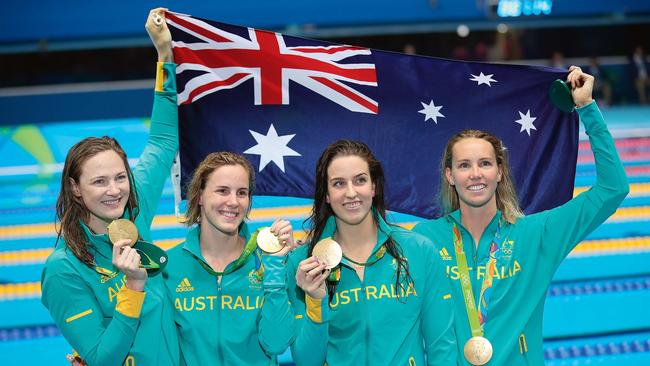
Cusack believes this postponement won’t derail his star pupil’s career. “There is no reason to think she can’t track well for the Games next year,” he says, although both he and Campbell point out it would be helpful for the passionate sporting public to go easy with the expectations of all its athletes.
“This has been a struggle that none of us have encountered before, and I really hope that Australia will have compassion for us when we’re standing behind the blocks, and realise this put a really big spanner in the works,” Campbell says.
“But that’s also what is going to be so wonderful about the Olympics: to see what can happen. It’s going to be the first global celebration since this virus gripped us, and it won’t just be a celebration of sport. It’ll be a celebration of unity, and how the world pulled together to work for the betterment of humanity.”
As restrictions began easing across the country in recent weeks, Campbell was once again able to access a swimming pool for up to two hours a day. While it’s only half the time she’d usually spend training in the water, she’s grateful. “That movement and that glide – I’ve really missed it.”
For the majority of lockdown, the Malawi-born Campbell sisters hadn’t seen each other, with Bronte remaining in Sydney with her partner when the state borders closed.
It was unusual for the two training partners and rivals, who would normally see each other every day on the pool deck. “She is someone who always inspires me to be better and do better, so I miss having that influence in my life on a daily basis,” Campbell says.
MORE STELLAR
Why Elizabeth Gilbert knows what her obituary will say
Why Carrie Bickmore is already missing iso
But COVID-19 has also fast-tracked what the two have already been working on for the past three years: how to be away from one another. “It’s really nice for us to establish ourselves individually, because we are together so much,” she says.
Bronte, 26, adds that although it was always their childhood dream to compete on the global stage together, it’s been important to define themselves as separate individuals, and points out that she is often mistaken for her older sister.
“It doesn’t bother me too much. It’s actually a nice thing because then I can say I’m an individual world record holder,” she says, joking about her sister’s success.
She’s also proud of how her sibling adjusted to the sudden halt in momentum. “Cate loves to control things,” Bronte says. “The fact she’s a control freak makes her so good at swimming. Things out of her control, like everyone, throw her for a bit of a spin.
“I do think [after] the year she had off after Rio, I’ve seen a big change in her and her ability to accept the things she can’t control.”
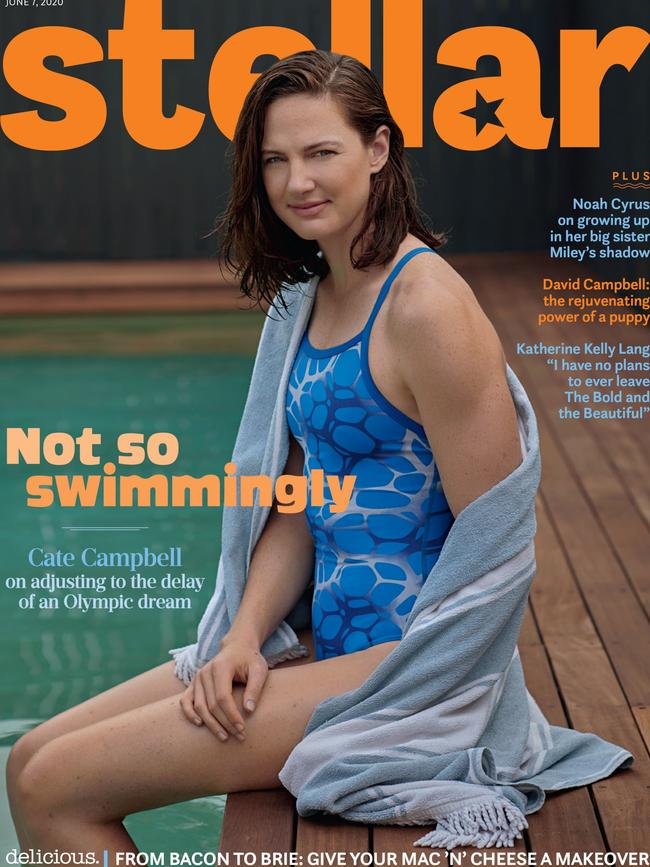
Her time out of the pool has given Campbell a glimpse of the life she may lead when she retires from swimming. “It makes me a lot less scared because I now know I can do other things. I don’t know exactly what that looks like, but there will be activities!”
And yet, ironically, it has pushed that eventual date further into the future. “Four years between Olympics is a long time. But three years seems a lot less,” she says with a knowing grin. “It’s definitely helped me not put a time limit on my career. I don’t have an end date.”
More than anything, though, her time away has simply reignited her love affair with the sport. “Swimming was and always will be my first great love and I can’t really describe it any other way. I had huge highs and heartbreaking lows and I’ve loved every aspect of it,” she says.
“Every time I step away from the pool, I realise I’m not done with swimming, that it’s still the thing I want to do. Which is a nice thing to know in the back of your head, especially when you’ve got another 12 months of really hard work ahead.”
